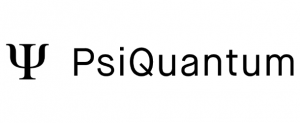Quantum News Briefs August 28: Juniper Networks partners with Quantum Bridge Technologies to advance industry-first quantum-safe networking solutions • PsiQuantum plans to eventually build a million qubit photonic quantum computer at Illinois Quantum and Microelectronics Park • UK risks quantum startup exodus after Labour slashes incentives • Quantum data beamed alongside ‘classical data’ in the same fiber-optic connection for the 1st time

Juniper Networks partners with Quantum Bridge Technologies to advance industry-first quantum-safe networking solutions
 Juniper Networks, a leader in secure, AI-Native Networking, today announced a strategic investment in Quantum Bridge Technologies, an industry leader in Distributed Symmetric Key Exchange (DSKE) for post-quantum cryptography (PQC) networks. This investment showcases Juniper’s commitment to advancing quantum-safe communications by enabling Quantum Bridge to further scale its DSKE solution. To further inform ongoing research and product development in the field, the two companies will collaborate through Juniper Beyond Labs< pathfinding projects.
Juniper Networks, a leader in secure, AI-Native Networking, today announced a strategic investment in Quantum Bridge Technologies, an industry leader in Distributed Symmetric Key Exchange (DSKE) for post-quantum cryptography (PQC) networks. This investment showcases Juniper’s commitment to advancing quantum-safe communications by enabling Quantum Bridge to further scale its DSKE solution. To further inform ongoing research and product development in the field, the two companies will collaborate through Juniper Beyond Labs< pathfinding projects.
Driven by governmental mandates and growing interest from system integrators, the quantum technology market is commercializing with both European and North American government agencies issuing guidance to standardize quantum security. According to Qureca, the quantum key distribution (QKD) market is projected to grow from $6 billion to $13 billion by 2030.
Quantum Bridge’s patented DSKE technology provides the industry’s first symmetric key distribution solution, delivering future-proofed security at scale without the use of any asymmetric cryptography and offers a sustainable security framework that seamlessly integrates into existing infrastructure. The combination of DSKE technology with Juniper’s quantum-safe VPNs with Crypto Agility solutions enhances Juniper’s AI-Native Networking Platform, helping customers better protect their high-value data from harvest now, decrypt later attacks and safeguard against future quantum computer-aided attacks.
In Other News:
Forbes reports: “PsiQuantum plans to eventually build a million qubit photonic quantum computer at Illinois Quantum and Microelectronics Park”
 Paul Smith-Goodson recently interviewed PsiQuantum’s Dr. Pete Shadbolt, co-founder and chief science officer of PsiQuantum in a Forbes profile. IQT News summarizes several highlights from their discussion.
Paul Smith-Goodson recently interviewed PsiQuantum’s Dr. Pete Shadbolt, co-founder and chief science officer of PsiQuantum in a Forbes profile. IQT News summarizes several highlights from their discussion.
PsiQuantum’s stated mission is to build and deploy the world’s first useful photonic quantum computer. That mission received a major boost through PsiQuantum’s recently announced multi-faceted partnership with the State of Illinois, Cook County, Illinois and the City of Chicago. Under that agreement, PsiQuantum will receive $500 million in tax incentives over 30 years. As the anchor tenant at the newly established Illinois Quantum and Microelectronics Park, PsiQuantum intends on eventually building a million-qubit photonic quantum computer there; it also plans to use a shared cryoplant to be operated by University of Illinois Urbana-Champaign that has $200 million in funding from the State of Illinois. To support the agreement, PsiQuantum has established collaborative research relationships with the University of Illinois Urbana-Champaign, the University of Chicago, the University of Illinois Chicago and Northwestern University.
A campus put together by a state will be used by national labs, by universities, by other quantum computing companies as well. DARPA will also be moving their quantum benchmarking activity there.
PsiQuantum plans to break ground in Brisbane, Australia, with the goal of enabling that site by 2027. Dr. Shadbolt emphasized that even though the company will eventually build a large quantum computer in Illinois, the first fault-tolerant, large-scale photonic quantum computer will be built in Australia.
CoinTelegraph: “UK risks quantum startup exodus after Labour slashes incentives”
 CoinTelegraph’s Tristan Greene reported August 22 on possible consequences of the United Kingdom recently rescinding a commitment to spend $1.7 billion to boost frontier technologies such as artificial intelligence and quantum computing.Insiders say this decision threatens to stifle innovation and could force startups to consider foreign investment options.
CoinTelegraph’s Tristan Greene reported August 22 on possible consequences of the United Kingdom recently rescinding a commitment to spend $1.7 billion to boost frontier technologies such as artificial intelligence and quantum computing.Insiders say this decision threatens to stifle innovation and could force startups to consider foreign investment options.
Conservative party leaders promised the funding less than a year ago, but the Labour Party’s June victory has apparently led to a change in direction. The $1.7-billion acceleration fund was taken off the table in early August and the response from the tech community has been nearly unanimously negative.
There are essentially four major hubs for quantum technologies: China, the European Union, the UK and the United States.
A significant portion of startups and businesses operating in the UK’s quantum technologies industry are university spinouts, companies founded to monetize tech developed by researchers at universities such as Oxford and Cambridge.
In the wake of Labour’s decision to cancel the $1.7 billion in planned investments, industry insiders appear to have ramped up concerns that UK startups and established companies working in the quantum industry are going to start opening or moving their offices and laboratories to the US and other foreign territories.
Space: “Quantum data beamed alongside ‘classical data’ in the same fiber-optic connection for the 1st time”
 Scientists have successfully transmitted quantum data and conventional data through a single optical fiber for the first time as per Owen Hughes’ recent article in Space.
Scientists have successfully transmitted quantum data and conventional data through a single optical fiber for the first time as per Owen Hughes’ recent article in Space.
The research demonstrates that quantum data in the form of entangled photons and conventional internet data sent as laser pulses can coexist in the same fiber-optic cable.
Most research into building a quantum internet has focused on the need for separate infrastructure or dedicated channels for quantum data to avoid interference from “classical” data. But this new “hybrid” network could pave the way for more efficient implementation of quantum communications by enabling quantum and conventional data to share the same infrastructure. The researchers revealed their findings in a study published July 26 in the journal Science Advances.



















